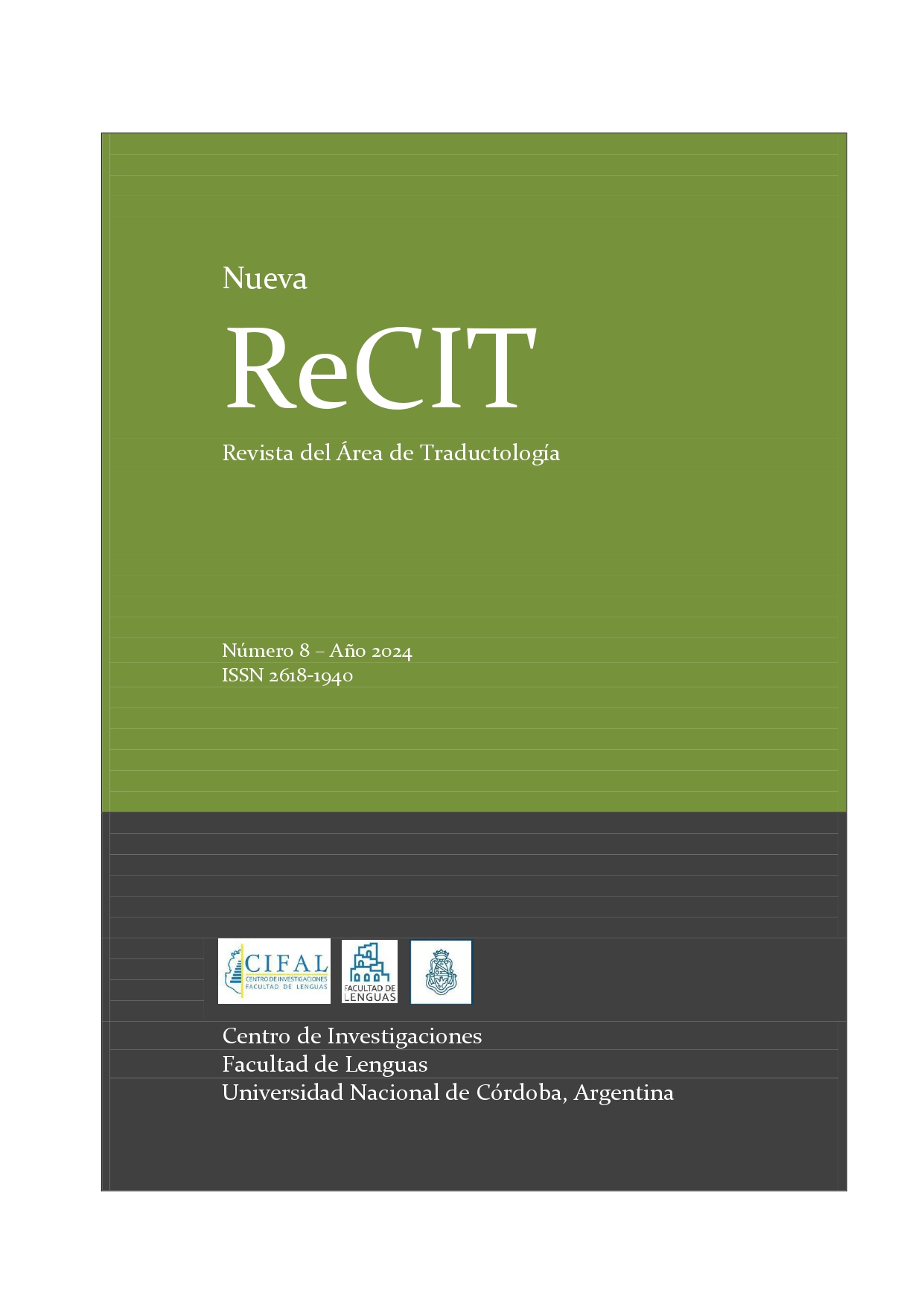Please mind the gap - Bridging the divide between academia and the financial translation industry
Palabras clave:
financial translation, academia-industry divide, best practicesResumen
The belief that academic researchers and industry professionals live in separate worlds is far from new. And the financial translation arena is no exception: both academic researchers and financial translators concentrate their efforts on their own areas of expertise with very little interaction with each other. This apparent disconnect presents an opportunity for cooperation and the exchange of ideas which could benefit both groups in achieving their ultimate goal: staying relevant in a playing field increasingly challenged by DeepL, ChatGPT and the like. In a career spanning almost a quarter of a century, the author has combined university lecturing with his full-time work as a financial translator for international organisations and private corporate clients. Drawing on this diverse experience, the author offers his take on how to bridge this academia/industry divide by looking at what other professions are doing to overcome this gap and by offering a collection of best practices that work in other sectors and could be applicable to the financial translation industry.
Referencias
Deloitte (2023). Deloitte Foundation Doctoral Fellowship Program. Accessed 19 July (2023). https://www2.deloitte.com/us/en/pages/about-deloitte/articles/deloitte-foundation-doctoral- fellowship.html
Drugan, J. (2013). Quality in Professional Translation. Bloomsbury.
Durban, C. (2017). Working with Direct Clients. For Real. American Translators Association 58th Annual Conference. Washington DC. October (2017). Accessed 29 July (2023). https://chrisdurbanblog.files.wordpress.com/2017/11/ata58-dc_direct-clients-for-real_oct2017- handout.pdf
Durban, C. and Jemielity, D. (2022). Tips for Freelancers: How to Identify and Enter Premium Markets? Translating Europe Forum, 9-11. Accessed 3 July (2023). https://www.youtube.com/watch?v=IX1ql2_crYo&list=PLLqIRaiVCGCSrlTMx1iG1pRlyYR1 ZKSyi&index=17
Este, J. (2012). Cracks in the ivory tower: is academia’s culture sustainable? The Conversation.
Accessed 11 July (2023). https://theconversation.com/cracks-in-the-ivory-tower-is-academias- culture-sustainable-8294
Froggatt, T. (2021). Academia and industry: Worlds apart? Researcher Hub, Research Blog, Blog Posts. University of Liverpool, Accessed 19 July (2023). https://www.liverpool.ac.uk/researcher/blog/posts/academia-industry/
Gallego, D. (2023). Keynote Speakers. University of Alicante. Accessed 29 July (2023). https://dti.ua.es/en/tradeco/icebfit/2023/keynote-speakers.html.
Government of Spain, National Research Agency. (2023). State Plan for Scientific and Technical Research and Innovation 2021-(2023). State Program to Develop, Attract and Retain Talent. Accessed on 11 July (2023). https://www.aei.gob.es/en/announcements/announcements- finder/ayudas-contratos-formacion-doctores-empresas-doctorados-18.
IH Cantabria. (2023). Spanish Joint Research Institute engaging in Research, Technology Transfer and Training. https://ihcantabria.com/en/about-us
Jemielity, D. (2018). Translation in Intercultural Business and Economic Environments. In Sue-Ann Harding and Ovidi Carbonell Cortés (eds.), The Routledge Handbook of Translation and Culture (pp. 533-577). Routledge.
Katan, D. (2009). Translation Theory and Professional Practice: A Global Survey of the Great Divide.
Hermes – Journal of Language and Communication in Business, 22(42), 111-153. https://doi.org/10.7146/hjlcb.v22i42.96849
Rey Juan Carlos University and Grant Thornton Forensic (2023). Joint Business/Academic Taught Programme specializing in the Forensic Accounting field. Accessed on 9 July (2023). https://catedraforensic.es
Say It Global Translations (2022). Are we facing the disappearance of Translation and Interpreting studies and professions? Accessed 19 July (2023). https://www.linkedin.com/pulse/we-facing- disappearance-translation-interpreting-/?trk=pulse-article.
Spain’s National Recovery and Resilience Plan. Strategic project for economic recovery and transformation focusing of the New Language Economy. Accessed on 12 July (2023). https://planderecuperacion.gob.es/como-acceder-a-los-fondos/pertes/perte-nueva-economia-de- la-lengua.
The N8 Research Partnership (2023). The N8 Research Partnership, a collaboration of the eight most research-intensive Universities in the North of England. Accessed on 22 July 2023 https://www.n8research.org.uk/research-focus/.
Torres-Simón, E. and Pym, A. (2015). The Professional Backgrounds of Translation Scholars. Report on a Survey. Draft 3.2. Accessed on 17 July, 2023 https://usuaris.tinet.cat/apym/on- line/research_methods/2014_ESTsurvey_article.pdf.
Vasheghani Farahani, M. and Shomoossi, N. (2021). Social Isolation and Disconnectedness in Translators: An Overlooked Occupational Concern. International Journal of Language and Translation Research, 1(2). Accessed on 27 July, (2023). https://www.researchgate.net/publication/354574345_Social_Isolation_and_Disconnectedness_i n_Translators_An_Overlooked_Occupational_Concern.
Wildfire Exchange (2023). The Wildfire Exchange project, an online learning hub for the development, exchange and consolidation of wildfire knowledge in the built environment between Chile and Australia. Accessed on 12 July (2023). https://wildfirex.com.au/the- platform-2/
Descargas
Publicado
Número
Sección
Licencia

Esta obra está bajo una licencia internacional Creative Commons Atribución-NoComercial-SinDerivadas 4.0.
Aquellos autores que deseen publicar en Nueva ReCIT aceptan los siguientes términos:
• Los autores conservarán sus derechos sobre el texto entregado y garantizarán a la revista el derecho de primera publicación de su obra. Dicho derecho estará simultáneamente sujeto a la licencia Creative Commons, la cual permite que terceros compartan la obra siempre que
se mencione al autor y al lugar de la primera publicación.
• Los autores realizan una cesión de derechos no exclusivos, lo que implica que la publicación de los artículos en Nueva ReCIT no impide al autor publicar su texto, a posteriori, en otras revistas u órganos editoriales; asimismo, los autores autorizan que el trabajo sea depositado en repositorios institucionales, como el Portal de Revistas de la Universidad Nacional de Córdoba o el Repositorio Digital de la Universidad Nacional de Córdoba.

